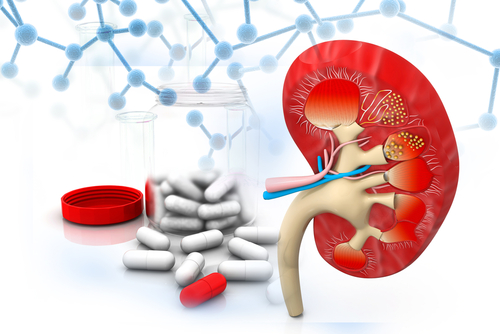Protecting Your Kidneys When You Have aHUS

More than 50% of people with atypical hemolytic uremic syndrome (aHUS) — a rare disease characterized by the formation of blood clots in the small blood vessels of the kidneys — experience impaired kidney function. This can lead to end-stage kidney disease.
Such complications can occur in addition to aHUS symptoms such as hemolytic anemia, which is the destruction of red blood cells, and thrombocytopenia, meaning a low platelet count.
Healthcare professionals say maintaining good kidney health is important in preventing more severe complications.
Here are a few tips to protect your kidneys if you have been diagnosed with aHUS.
Exercise regularly
Exercising is a good way to keep blood pressure in check and reduce the risk of chronic kidney disease. People with aHUS often experience shortness of breath, which can make strenuous exercises difficult, so ensure that you don’t push yourself too much. If in doubt, consult with a physiotherapist who will be able to suggest exercises that can be performed safely.
Eat and drink healthy
A good diet and a healthy fluid intake are essential for proper kidney function. It’s recommended that you reduce your salt intake to 5 to 6 grams per day, which is about a teaspoon. Try to drink at least 1.5-to-2 liters of water daily. However, be sure not to have an “aggressive” fluid intake, as that can cause side effects such as hyponatremia.
It also is important to reduce the amount of sugar and fat in your diet, especially if you are already at risk of obesity or diabetes.
Avoid smoking
Smoking is a risk factor for both kidney and heart disease. Smoking can harden the blood vessels in the kidneys, leading to increased blood pressure and insufficient blood supply to the kidneys (hypertensive nephrosclerosis).
Watch out for signs of heart disease
Kidney function and heart health are interdependent on each other. Therefore, it is important to consult a cardiologist to monitor your heart health if you are having kidney problems.
Never delay a dialysis session
Dialysis is the process of artificially removing waste and chemicals from the blood in the event of kidney failure. Your doctor will suggest a schedule for dialysis based on the severity of kidney damage. Over time, aHUS patients can recover their kidney function. But it is important not to delay any dialysis session and to stick to the schedule.
Last updated: Oct. 09, 2019
***
AHUS News is strictly a news and information website about the disease. It does not provide medical advice, diagnosis, or treatment. This content is not intended to be a substitute for professional medical advice, diagnosis, or treatment. Always seek the advice of your physician or other qualified health provider with any questions you may have regarding a medical condition. Never disregard professional medical advice or delay in seeking it because of something you have read on this website.






